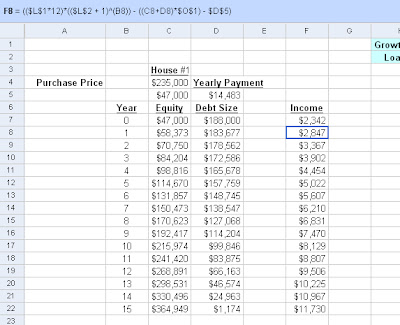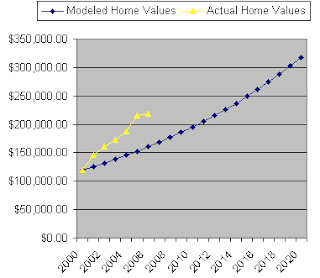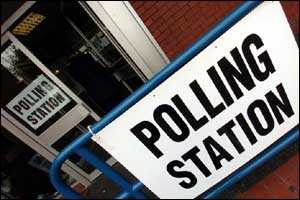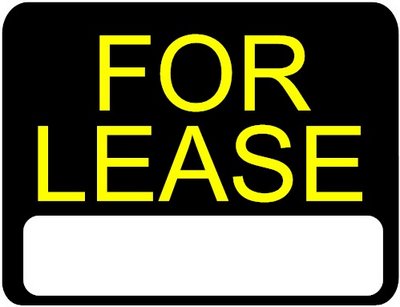
So throughout this week I've been dissecting NAR's latest national ad campaign that tries to explain to us why today is a great day to Buy or Sell a House! I've been breaking it down partly because it's an easy target (as I wrote on Wednesday, the ad does more to comfort Realtors than convince a skeptical public). But I'm also breaking it down because it's a wonderful, if clumsy, example of advertising techniques.
A real estate investor needs more than just appraisal skills, they need marketing skills, leadership skills, accounting skills and possibly even handyman skills. In other words, real estate is an entire business. So by dissecting the ad for the tricks they use to persuade, we can learn how to use these tricks ourselves and become better marketers.
Now I admit that using words like "tricks" and "propaganda" sounds awfully evil. But I assure you, all advertising is propaganda, it's all designed to influence your beliefs. "Trust the Midas touch" encourages you to trust total strangers with your brakes. "The quilted, quicker picker-upper" implies that Bounty paper towels are better designed than others, without providing any evidence to support such claims. Even a Happy Meal is named that way for a reason.
These tricks, while they truly are propaganda, are simply used to best promote their product. And there is nothing evil in using them. I admit that it's one thing to outright deceive a person into believing something that's not true (which I would agree is a bad thing to do), but it's another to help a potential buyer to help envision themselves living a wonderful life in the house you just happen to currently have for sale... What do you think staging a home is, but propaganda?
Back to the conclusion of our dissection of NAR's national ad campaign:
REAL ESTATE IS A GREAT INVESTMENT
Homeownership is a safe, secure way to build long-term wealth. The national median price of homes bought ten years ago has increased 88 percent. The number of US households is expected to increase 15 percent during the next decade, creating a continued high demand for housing.
Now I obviously can't argue with the title here, can I? I mean
I'm invested in real estate! Obviously I think there are good investments to be found within real estate. However, there are some clever techniques used here to promote their cause.
The first is
oversimplification. They begin with the claim that owning real estate is a
safe and
secure way to build
long-term wealth. First of all, they are being redundant, simply because they want to use as many emotionally-charged words as possible. Safe and secure, within this context, mean exactly the same thing, "risk-free". If I were nit-picking I'd go into a bit of a rant about how borrowing money for an "investment" is never safe. When you play with other people's money, you always run
the risk of over-extending yourself and being unable to pay that money back.
In addition "safe" is only useful as a means of comparison, by itself it's an empty word. The "safest" investment is generally considered to be a Treasury Bill, which is guaranteed by the US Government. But what if the government fell next year? I'll agree that my scenario is tremendously unlikely, but it's possible. Nothing is "safe". They also use the phrase "long-term wealth". What does that mean exactly? Do they mean wealth that takes a long time to build? Wealth that lasts a long time? I'd spend some time thinking about it if it actually mattered.
So why do they use these words that have no real meaning behind them? Simply because these words are emotionally charged, that is, they invoke emotions within the reader. They specifically chose these words, "Safe" and "long-term", because they are trying to appeal to the American public which has just suffered through two bubbles in a row. If NAR had advertised real estate as "safe" in the late 90's everyone would have laughed. The public wanted "explosive" like eBay or Yahoo, not "safe". But now that we've suffered through two tremendous setbacks, the public is yearning for words like "secure".
Real estate is a very emotional product, evoking intense reactions from both buyers and sellers. So it's not a surprise that Realtors are pros at using emotional words. Look at your local listings and you'll undoubtedly find them peppered with such meaningless descriptions as "warm", "fantastic", and "luxury". These types of words are especially useful when accurate descriptions might not suffice.
However, they can backfire on you too. As propaganda has evolved, people have become more sensitive to it (consciously or subconsciously). Sometimes people will see emotionally charged words for what they are, words without substance, and count it negatively against you. In his famous book
Freakonomics, economist Stephen Levitt noted the use of emotionally charged words in real estate:
In fact, the terms that correlate with a higher sales price are physical descriptions of the home itself: granite, Corian, and maple. As information goes, such terms are specific and straightforward - and therefore pretty useful. If you like granite, you might like the house; but even if you don't, "granite" certainly doesn't connote a fixer-upper. Nor does "gourmet" or "state-of-the-art," both of which seem to tell a buyer that a house is, on some level, fantastic.
"Fantastic," meanwhile, is a dangerously ambiguous adjective, as is "charming." These words, it turns out, are real estate agent code for a house that doesn't have many specific attributes worth describing. "Spacious" homes, meanwhile, are often decrepit or impractical. "Great neighborhood" signals to a buyer that, well, this house isn't very nice but others nearby may be. And an exclamation point in a real estate ad is bad news for sure, a bid to paper over real shortcomings with false enthusiasm.
If you study an ad for a real estate agent's own home, meanwhile, you see that she emphasizes descriptive terms (especially "new," "granite," "maple," and "move-in condition") and avoids empty adjectives (including "wonderful," "immaculate," and the telltale "!"). She patiently waits for the best buyer to come along. She might tell this buyer about a house nearby that just sold for $25,000 above the asking price, or another house that is the subject of a bidding war. She is careful to exercise every advantage of the information asymmetry she enjoys.
He's really just confirming what most of us already knew. That real estate agents have honed their craft to a fine edge, and have used words like "charming" so often that we have become numb to their effects.
Of course that doesn't mean that there isn't a place in real estate for the emotional appeal. It just means that the place to tug their heart strings just isn't in a printed advertisement. When walking a prospective buyer through a house it's easy to toss in a liberal number of adjectives designed to open your customers hearts, and their wallets:
"And if you'll come in the kitchen you'll see a beautiful breakfast nook that is a perfect place for the family to gather and share informal meals together. And you can see a large window, which not only lets the sunlight in, but also allows you to keep a close eye on your kids as they play in the spacious backyard from the comfort of your kitchen."The next trick they employ is
selective sampling. This is a trick used almost every time you see a statistic. They claim that housing has increased by 88% nationally over the last 10 years. They exercise selective sampling in two different places in this claim.
Have you ever watched a sports game where the commentators came out with the craziest comments? Like "
this team has scored more than 20 points in their last 17 games against left handed quarterbacks when playing south of the Mason-Dixson Line"?
The unstated assumption is that they will then score more than 20 points in this game as well (assuming that they are facing a left handed QB, and playing in the deep south). But even your math-impaired viewer realizes on some level that that statistic seems to be somewhat doctored. And it is, the announcers (and their stat doctors) are simply choosing data points that best fit their claims. Playing in the south may or may not have had anything to do with the team's ability to score points, but it fits their model.
The claim by NAR is the exact same situation. They are choosing the data that best fits their model (in this case, that houses are growing rapidly in value). First we need to translate that very large number (88%) into a more useful form. Using
some simple calculations we can turn 88% over a decade into 6.5% a year. That's not a terrible return.... for that period of time. But since NAR selected the 10 year period, we can assumed that that's about as good as it gets.
Indeed,
MSN Money columnist Liz Weston wrote:
In the past 40 years, the average appreciation for homes has exceeded the inflation rate by only a percentage point or so. Compare that to stocks, which have bested inflation by 7 percentage points in the same period.
I don't know for certain, but I'm relatively sure that her value for inflation is annualized to about 3% or so, giving us a typical real estate growth of 4%.
Of course a selective sampling then implies an unstated assumption. In this case the assumption is that real estate goes up a lot and will continue to go up. Consider that during the 10 years between 1989 and 1999, the S&P 500 (an index of stocks) grew by 429%! That's an annualized return of over 16%! Does that mean that 1999 was a great year to buy stocks? Obviously not, since over the next 5 years the S&P returned an annualized -2.7%.
If anything, the increased appreciation over the last 10 years should make you more cautious, not less, when looking into buying a home. If the housing market has under-performed it's average for the last 10 years (say only returning 2%), then that should make you more bold in entering the market.
Of course all of this is relatively moot because of their second selective sampling choice. They chose to use a national average for a market that is extremely local. If you are looking into buying a fund that owns houses all across the nation, the national prices changes may interest you a great deal. But for your typical home buyer the national average means little to nothing.
Consider
this chart from CNN. They claim that home prices in the Virginia Beach/Norfolk/Newport News area (where I own) rose almost 24% from a year ago. And at the same time Minneapolis fell almost 2%. Aside from the fact that I haven't witnessed any of this magical appreciation in the Virginia Beach area, how's a homeowner in Minneapolis supposed to think when a Realtor tells him that the average American home appreciated almost 4% from the year before? How does that impact him?
So we've discussed, today, two of the most powerful tools of propaganda, selective sampling and emotionally-charged words. Selective sampling can be used in our favor, especially when we tell a potential buyer about the house down the street that just closed for $15,000 more than we're asking (assuming, of course, that it's true). We don't have to tell them that the house four doors over just sold for $5,000 less than our asking price.
Emotionally charged words can also be a very useful tool, but also a dangerous one. Trying to convey emtion through a printed word is a very bad idea, unless you happen to be
John Steinbeck. Printing emotionally-charged words is a bad idea for two reasons. First, people like to connect emotions to people. When someone tells them "
commune with friendly neighbors in your landscaped front yard" or that they can "
OWN YOUR OWN BACKYAD OASIS !!!!!" they want to connect with a person, not an anonymous sales rep typing generic things down.
Secondly, the written word is apt to be read over and over again. Words that try to provoke images in your buyer's mind may work beautifully the first time through. But as humans, we go back to things we like over and over again. If it's written, we'll read it again. And the second or third time through, they become more likely to see empty words for what they are. When those same words are used verbally, all the buyer has to go back to is his own memory. And they're more apt to remember the image they created in their mind around your words than your words themselves.




















